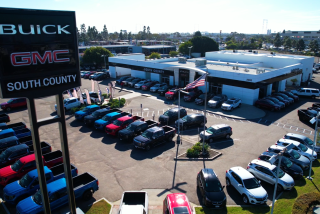February Car Sales Inch Up; End of Gulf Crisis Cited
- Share via
DETROIT — In a sign that consumer confidence began to rise as the Persian Gulf War neared an end, auto sales in February showed some improvement from the pace of recent months, auto makers reported Tuesday.
But in an even stronger indication that the nation’s economy continues to flag, sales of domestically built cars and trucks fell 11.7% from the same period a year ago.
Vehicles built in the United States sold at a seasonally adjusted annual rate of 9.3 million, compared to January’s low 8.8 million, according to formulas used by the U.S. Commerce Department.
“Car sales are still at poor levels, but they’re not at devastating levels,” said Chris Cedergren, an analyst with J. D. Power & Associates in Agoura Hills.
Cars and trucks sold at a slightly faster rate during the last 10 days of the month. Late February sales of domestically built cars and trucks fell 8.9%, compared to the same period last year. In the five previous 10-day reporting periods this year, domestic sales were down between 12.9% and 36.3%.
In part, Ford Motor Co. and General Motors Corp. attributed the quickening of the sales pace late in the month to the waning of the Gulf War. Dealers say there has been more traffic in their showrooms since U.S. and allied forces launched their lightning ground attack.
“It’s like somebody threw a switch,” said Terry Anderson, general sales manager at Glendale Nissan in Chicago, Ill. “People are much more optimistic. Everyone’s talking about how we kicked (Iraq’s) tail.”
But Cedergren warned that a cease-fire alone will not revive sluggish auto sales.
“This is not a reprieve for the car market from the recession,” Cedergren said. “There will be a slight improvement in the car market now that the war is gone, but car sales will continue in a depressed state until the economy begins to heal.”
Not every auto maker reported February sales Tuesday, but preliminary results indicated that Japanese manufacturers have lost two percentage points of market share since December, to 22.5% from 24.5% of U.S vehicle sales. That would be evidence of a much-speculated-upon patriotic backlash against Japan’s relatively small role in the Gulf War.
There have been indications for several months that the Japanese had stopped gaining market share, but the reasons for the plateau may be short-lived, analysts say. Fleet sales, for example, command a bigger share of a depressed market, and those traditionally are dominated by domestic makers.
But a decline in import market share would confirm consumer surveys by Integrated Automotive Resources of Wayne, Pa. The surveys have found that since the war began, would-be car buyers have been more inclined to buy domestically produced cars.
The portion of those weighing a car purchase who will only consider a Japanese make has dropped to 2.3% from 4.3% since the invasion of Kuwait on Aug. 2, said Thomas F. O’Grady, president of the market research firm. Most of the decline has taken place since the fighting began in mid-January. Similarly, the number who will consider only a European model dropped to 1% from 1.9%.
Meanwhile, the share of would-be car buyers who say they will only buy a domestic model jumped to 52.9% from 50%, O’Grady said.
Few consumers make a distinction between Japanese-brand cars made in this country and those built overseas, O’Grady said. Recent advertising by Honda and Nissan publicizes the Ohio and Tennessee roots of their cars.
But whether a patriotic backlash translates into sustainable sales gains by Detroit depends on whether customers newly interested in purchasing domestic makes find that the vehicles are as good as their Japanese competitors, O’Grady added.
“What’s going to take precedence over philosophy is value,” Cedergren concurred. “Consumers are smart. They’re going to stick with what they perceive gives them the best value.”
Among U.S.-based companies, Chrysler Corp. posted the smallest year-to-year sales decline in February, off 7% to 112,096 domestically built cars and trucks sold. GM reported a 16.2% decline in domestic vehicle sales, to 308,212 vehicles sold. Ford said sales fell 13.2% to 220,589 vehicles sold.
Japanese auto makers posted a modest 4.8% gain in sales of cars and trucks produced in North America, while Japanese imports declined 25% from a year ago.






